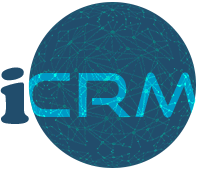8th International Workshop on Integrated Social CRM at 22nd WI-IAT23 – Call for Papers
Social CRM links social media and customer relationship management (CRM). This involves a variety of application systems, from recommendation systems to community management and monitoring as well as artificial intelligence and mining tools. They are the basis for Social CRM solutions that support daily tasks such as the prediction of consumer behavior, customer profiling, impact simulation, business network analysis, lead prediction, market trend prediction, competitor analysis, knowledge discovery, automated interactions in sales and service or process and workflow automation. Social CRM may be found in various industries (e.g., tourism, banking, energy, public sector, publishing, health, logistics, education), but reaping the potentials also means to (tightly or loosely) align application systems with business strategies and processes.
The iCRM workshop aims to advance research in the field of Social CRM that on the one hand recognizes the need for integrating information systems, processes and systems as well as the need to integrate various forms of intelligence in Social CRM solutions. This comprises technical and economic aspects with the development and implementation of innovative tools and methods for intelligent data analysis in Social CRM as well as redesigned processes and capabilities for Social CRM. The setup is interdisciplinary and invites researchers as well as professionals to contribute research papers, case studies and/or to present prototypes on relevant topics, both completed and ongoing.
Topics of Interest include, but are not restricted to:
Technical Perspective
- Novel data analysis algorithms and approaches for Social CRM
- Data integration and fusion in Social CRM
- Privacy-preserving analysis for Social CRM
- Innovative Social CRM application systems
- Novel interaction technologies (e.g., chatbots, decision support assistance, copywriter)
- Interaction with personal IDs/self-sovereign identities in Social CRM
- Impact of specific technologies on Social CRM (e.g., AI, DLT, IoT, Metaverse)
- Technological architectures for integrated Social CRM
Managerial Perspective
- Innovative Social CRM processes and scenarios
- Alignment of business processes and Social CRM
- Implementation strategies for Social CRM
- Managing consumer intentions and consumer behavior with Social CRM
- Business value of Social CRM
- Social CRM maturity and readiness
- Out/In-Sourcing in Social CRM
- Privacy management in Social CRM
- Analysis of Social CRM capabilities in specific domains (e.g., finance, public, hospitality or energy sectors)
Societal Perspective
- Customer expectations towards Social CRM
- Sustainable consumption and Social CRM design
- Social CRM and Sustainable Development
- Cultural influences on the perception and use of Social CRM
- Dark sides of Social CRM (e.g. shadow databases, extensive profiling and segmentation, discriminative analysis models, exclusion of non-social media users)
- Ethics and Social CRM
Submission Guidelines
- The workshop welcomes full research papers, experimental research, case studies and student research papers.
- Papers must be submitted electronically in standard IEEE Conference Proceedings format (max 8 pages, see Article Templates)
- Submitted papers will undergo a peer-review process, coordinated by the International Program Committee.
Chairs
Rainer Alt
Leipzig University / Social CRM Research Center, Germany
Olaf Reinhold
University of Cooperative Education Saxony / Social CRM Research Center, Germany
Fabio Lobato
Important Dates
Program Commitee
- Alan Marcel Fernandes de Souza, Federal Institute of Education, Science, and Technology of Pará (IFPa), Brazil
- Alireza Ansari, Leipzig University, Germany and IORA Regional Center for Science and Technology Transfer, Iran
- Antônio Jacob Jr., State University of Maranhao, Brazil
- Chulmo Koo, Kyung Hee University, South Korea
- Costas Assimakopoulos, International Hellenic University, Greece
- Cristiana Fernandes De Muylder, FUMEC University and Federal University of Uberlândia, Brazil
- Dewi Tamara, Binus University, Indonesia
- Elaine Farias, Federal University of Uberlândia (UFU), Brazil
- Emílio Arruda, University Federal do Pará and University of Amazon, Brazil
- Fabíola Pereira, Federal University of Uberlândia (UFU), Brazil
- Flavius Frasincar, Erasmus University Rotterdam, The Netherlands
- Georgios Lampropoulos, International Hellenic University, Greece
- Gültekin Cakir, Maynooth University, Ireland
- José Marcos de Carvalho Mesquita, The University of Connecticut, USA
- Julio Viana, Social CRM Research Center, Germany
- Kerstin Siakas, International Hellenic University, Greece
- Kwabena Obiri Yeboah, Catholic University College of Ghana, Ghana
- Mattis Hartwig, University of Lübeck, Germany
- Nino Carvalho, IPOG Instituto de Pós-graduação (Brazil) and IPAM Instituto Português de Ad-ministração de Marketing (Portugal), Portugal
- Omar Andres Carmona Cortes, Instituto Federal do Maranhão, Brazil
- Peri Akbar Manaf, Binus University, Indonesia
- Rabi Sidi Ali, Takoradi Technical University, Ghana
- Rafael Geraldeli Rossi, Universidade Federal do Mato Grosso do Sul, Brazil
- Regine Vanheems, Laboratoire de Recherche en Management de La Sorbonne and Orange, France
- Renato Fileto, Federal University of Santa Catarina, Brazil
- Ricardo Limongi França Coelho, Federal University of Goiás, Brazil
- Ricardo Marcacini, University of São Paulo (USP), Brazil
- Thiago Henrique Silva, Federal University of Technology of Parana, Brazil
- Vicente Guerola Navarro, Universitat Politècnica de València, Spain
- Winnie Ng Picoto, Technical University of Lisbon, Portugal
